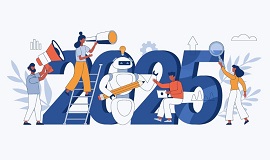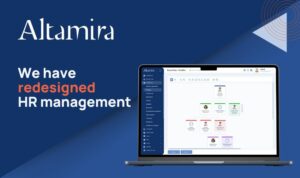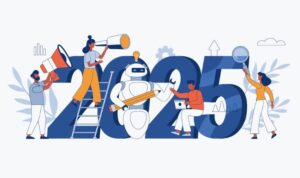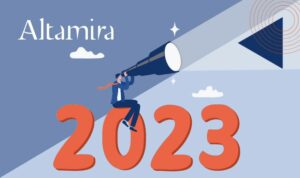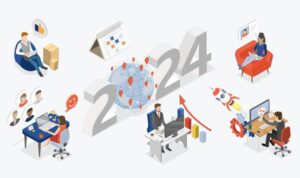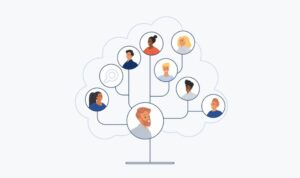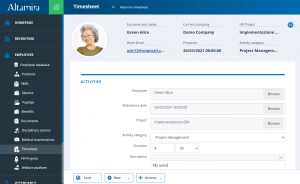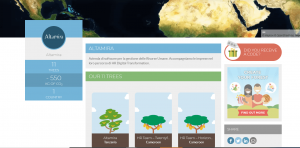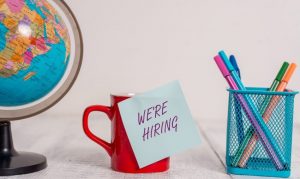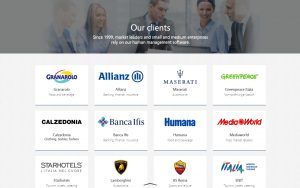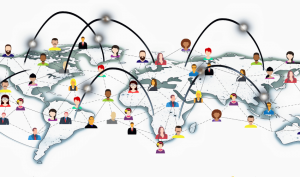Are you looking for HR trends for 2022? Find them here!
As the Christmas holidays draw near, we have carried out an analysis of the most authoritative forecasts for the HR industry in 2021.
To put some order among the many items being talked about, we have analyzed the trends identified by 12 authoritative articles and compiled a ranking of the most popular ones. Next to the name of each trend, we have indicated how many articles mentioned it in brackets.
Understandably, next year’s HR trends are heavily influenced by the COVID-19 pandemic.
The top 16 HR trends for 2021
- Focus on employee welfare (8). The 2020 pandemic has undoubtedly had a great impact on people, so much so that companies have put employee welfare at the top of their HR priorities for 2021. This will result in an expansion of benefits dedicated to this aspect, also thanks to the increase in apps and dedicated digital services. The offers will also include services and products to protect employees’ mental health.
- Growth in HR specialists (5). The skills that an HR professional needs to possess are always expanding. As a result, the HR trends for 2021 include an increase in HR specialists focused on more limited areas. We will have, for example, experts in HR analytics, employer branding and talent acquisition, employee engagement, etc. Thanks to these specialized figures and fundamental concepts such as the skill map and the skill gap, the HR department will play a more important role in corporate strategies.
- Managing a hybrid employee experience (5). In 2021, the HR department will need to maintain high engagement and build a strong employee experience despite the fact that the workforce is split between office and home and includes a large number of external employees. With the help of digital support, it will have to review many processes—from onboarding to the benefits plan, from evaluations to talent management—to satisfy this “hybrid” workforce.
- Focus on continuous learning for reskilling (5). One of the most important challenges for companies in the coming years will be the updating of skills. The skills needed for the world of work are evolving so rapidly that this requires a dynamic and continuous approach to training, both for soft and hard skills. Technology will absorb the most automated and repetitive tasks, while people will focus on creative and strategic ones.
- The growth of Artificial Intelligence continues (5). Since we started publishing our HR trend analysis at the end of 2017, Artificial Intelligence has always been part of the list of the most widely predicted trends. This shows that the process of assimilation and refinement of a new technology takes a long time. After being tested in recruiting, Artificial Intelligence has entered other areas of HR management, such as training, employee engagement and HR analytics. In 2021, AI will be introduced in many businesses, but it will continue to be a technology mainly within the reach of large companies.
- Cloud-based HR software has won out (5). With the increase in smart working, cloud-based software has definitively proven its superiority over on-premise solutions, in HR as in other business areas. Not only because these solutions can be used from anywhere and from any device, but also because they allow self-service access for employees, decentralizing HR management. In 2021, the systems that will be preferred will be those that provide an enjoyable user experience and an easy interface for occasional users.
- The time for data-driven decisions (4). In times of crisis, one cannot afford to make mistakes. All the more reason to accelerate the use of people analytics to support decisions, taking advantage of the increasing amount of data stored in HR management software. HR analytics offer useful information on absenteeism rate, turnover, salary balance, etc. Sophisticated systems can put forward predictions to help the HR department, for example, retain an employee who is about to resign.
- Cultivating Generation Z (4). Among the HR trends for 2021 one can also find the generational issue. Generation Z will be increasingly present in the world of work, bringing the number of generations coexisting in the office to 4 or 5. Like every new generation, Generation Z has its own scale of values and priorities. As a result, the Human Resources department will have to update career paths, benefits and policies and find the right approach to motivate the new employees and get them involved in the company mission. A high level of attention will be given to corporate responsibility and sustainability.
- The gig economy is growing larger and larger (4). The uncertainties caused by the crisis and the closure of the offices have accelerated a process that was already in progress, namely the growth of the workers of the gig economy, atypical and independent, who, according to some studies, may even exceed 40% of the employees of a company. The HR department will need to study appropriate policies, compensation and engagement mechanisms, and HR technology will also need to evolve to support these needs.
- Employer branding will still make the difference (3). Employer branding, which has dominated the classic HR trends over the past years, is now a less urgent topic, for one simple reason: its importance has now been acknowledged by companies. In 2021, the economic recovery will put many companies in competition for the best candidates. To achieve excellent results, it will be necessary to pay great attention to the application process and create a pipeline of interesting profiles.
- Promoting diversity (3). In 2020, the theme of diversity was brought to the fore in the United States by the Black Lives Matter movement. There have also been setbacks regarding the gender (pay) gap, as many mothers had to give up work to take care of their children during lockdown. In 2021, companies that want to succeed will have to try to catch up and narrow the gap, especially when it comes to leadership roles.
- Benefits and retention (2). The benefits package offered by the company will become an even more decisive retention tool in 2021. As a result, many companies will expand their offerings to include both more traditional benefits, such as parking and office shuttles, and more modern products and services, such as telemedicine.
- Blockchain & Human Resources (2). This technology, made famous by Bitcoin, truly shines when applied to data tracking and privacy protection. As a result, it can be used successfully in the field of HR technology, to comply with regulations such as the GDPR and ensure the authenticity of documents, career paths and educational qualifications.
- The importance of Change Management (2). The ability to adapt to change will make a crucial difference in a company’s life cycle. One will have to keep the global macro trends under observation and estimate which of these could have an impact on the company, and what kind of impact.
- Regulating remote work (2). After how 2020 has gone, it is quite natural that smart working would also appear among the HR trends for 2021. Once the emergency is behind us—hopefully—one will have to mediate between the desire of many employees to continue the experience of working from home and the concerns of managers about a possible decline in productivity. Other problems concern the time of availability for employees, which tends to expand, and the use of equipment (computers, chairs, desks, lights) not designed for working at home. It is certainly time to give this mode of work a solid regulatory framework, both at the country and at the company level.
- New uses for Virtual Reality (2). Virtual reality might also reveal itself to be a perfect support in times of smart working. For example, in recruiting, it could do so by allowing manual workers to demonstrate their skills at a distance. The contribution it will make in training and onboarding will be just as important.
Sources: Beekeeper, Fingo HR, Gartner, HowNow, Lanteria, Paychex, Pentabell , Possibleworks, SmartBuys Consulting, Sympa, Vsource
Copyright: ©EkaterinaGr/Adobe Stock










